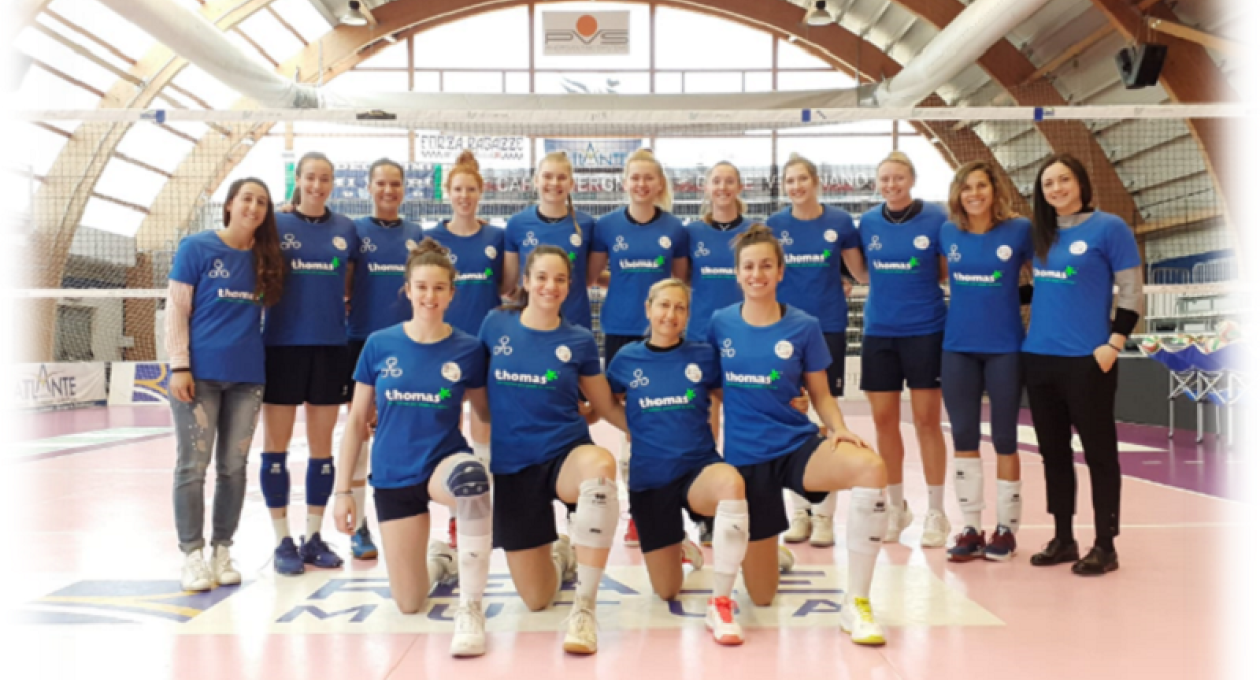Italy’s first women's series A volleyball team to implement Behavioral assessments to strengthen their team.
Thomas International’s Behavioral Assessment (also known as PPA), can be defined as a "psychometric test that measures behavioral aspects". It is used today at an international level in over 60 countries worldwide.
When we talk about behavior, we refer to a broad, complex and often enigmatic context. Nowadays, in the sports field and beyond, it is underestimated and undervalued because people have always taught us that behavior is a "soft skill".
Thomas Team was developed as an additional element to the Behavioral assessment and is used to understand a working team, be it sporting or organisational, at a behavioral level. Specifically, it analyses the team's strengths, areas for improvement and values that each individual member can bring to the team based on personal behavioral characteristics.
The first team in the volleyball sector to reflect on this issue, prioritise and tackle it was Reale Mutua Fenera Chierie ‘76, a Volleyball team based in Chieri, Italy that has been successfully playing top flight women’s volleyball for a number of years.
This project was developed with the primary objective of supporting Valentina Torrese, a professional volleyball athlete, who expressed the desire to use Thomas International's Behavioral assessment for the first time in a volleyball context and to report its results in her Master's thesis in Motor Sciences. We asked the key stakeholders more about it.
Valentina, why did you choose the Chieri Volleyball team?
“It all started because Chieri has always paid particular attention to their athletes; anyone who has come across them primarily remembers the people, the environment and the familiarity that the team instils."
From this clear observation, the collaboration between Reale Mutua Fenera Chierie ’76 and Thomas International Italia was born. The partners immediately found a lot of agreement and enthusiasm from the group and the team, and, particularly, from Mr. Lucio Zanon di Valgiurata, main official sponsor of the team (Fenera).
Lucio, what did you think the first time you talked about the Behavioral assessment?
“I was initially intrigued by it; then deeply interested. The organisation of a volleyball team is continuously evolving, to understand new and innovative professional skills. I am sure that the Behavioral assessment will quickly become a commonly used tool to improve and make team management more effective. We are very proud to have been the first to adopt it, and I thank Ylenia Migliorin and Valentina Torrese, who I have known and admired for some time, for offering it to us."
Lucio presented the product to the team and, in October 2019, they decided to adopt it.
The aim of the project is to highlight the importance of paying greater attention to their athletes, from a technical point of view as well as from the behavioral one. Knowing how to improve an athlete, how to enhance them and support them can be elements that, if understood in time, can make a huge difference and give great results in terms of final performance.
Positively supporting each athlete also means giving her a role within her team. Not just a technical role, but one connected to individual behavioral characteristics.
The five-month process mainly revolved around the athletes and involved the following steps:
- Behavior assessment administration to athletes through the Thomas platform
- Processing of personal reports for each athlete
- Return of each Behavior profile to each athlete in private
- Creation of the team report
- Discussion of the team's relationship with the athletes.
The final report aggregated the data of each athlete and, thanks to a fully automated system, it was possible to observe the "portrait of the Reale Mutua Fenera Chierie ‘76" as a whole, which highlighted the key characteristics of the team, the elements which needed support and areas for improvement under behavioral performance .
The profile of each athlete was then compared with the "team portrait" and this "match" highlighted how each of them interfaces with the team as a whole.
To conclude, the report analysed the predominant roles within the team and highlighted roles where lower percentages of athletes were concentrated.
Coach Bregoli, what do you think of the results that emerged from the team's report?
“I think very interesting results have emerged, and indeed, I would have extended the project to the staff too. Surely this is a tool that could be very useful and thought-provoking during the team construction phase, as well as during the preparation in order to work on the group dynamics."
The results that emerged confirm what we expected, in terms of results themselves and also in terms of appreciation of the tool. The hope is that this process will be adopted by sports clubs that, like Chieri, understand that investing in talent means investing in athlete’s potential just as much as their established skills.
Psychometric assessments are used in sporting environments to create advanced coaching and training programmes, manage athlete development, build coach and athlete relationships, improve team communication and raise organisational performance. Psychometrics can help sporting organisations to get the best out of their people; be it their coaches, athletes or support staff. Assessment tools can provide objective feedback on people potential within a team, club or organisation.
Read about our different assessments on our website and contact one of our experts to teams can be supported to reach the top of their game.



